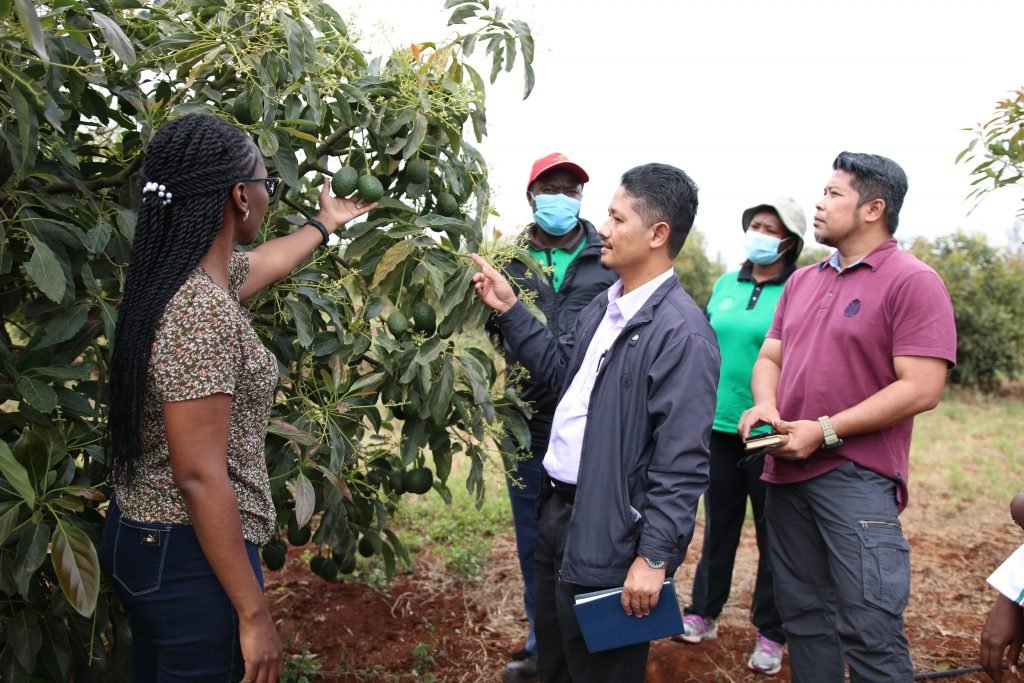Agribusiness is a viable economic avenue that can empower our farmers if done correctly
By Chris Flowers
Agriculture holds the key to the economic transformation of Kenya and the East African region. The challenge, however, lies in practicing agriculture sustainably to unlock its true value from food production to agro-processing.
Ahead of the 27th United Nations Climate Change Conference (COP27) to be held from November 6 to 18, 2022, in Sharm El Sheikh, Egypt, we have many challenges ahead. Some are brought on by climate change, population pressure, and political or financial instability within our economic and geopolitical space. Still, as a country and region, we have many unique advantages, including political goodwill, which, if used wisely, will allow us to build a robust agricultural economy.
Download Nairobi Business Monthly Latest Edition
Let me start by dealing with a favourite topic of mine: irrigation and water security. Food producer Kakuzi in Makuyu County has 19 earth dams that capture the rainfall which falls on our catchments, allowing us to use the water for irrigation during the dry season. So, the critical part of water security is not just the dam but the catchment itself. If we don’t preserve the water catchment fields, our dams won’t fill with water, or they could silt up.
In short, sustainable and secure irrigation requires that we sacrifice something, in this case, acres of land, which act as water catchment areas. These fields are exclusively preserved with natural habitat and strictly managed to avoid soil erosion, bush clearance, or overgrazing. In these fields, we must overcome the temptation to dig up the land and plant crops.
See, irrigation is not a leisurely pursuit in agribusiness. Using the right technology to apply the right amount of water and time requires a considerable investment. But again, nothing comes for free. If capital has been spent on constructing a dam, then it is only prudent that we make every drop of water count.
Farming, after all, is a science, and irrigation is very much not an activity one can leave to chance. The key challenge for agriculture, after water, is energy, not just the cost but availability. In Kenya, our crucial export crop of tea requires enormous energy to turn it from lush green leaves to dry tea; bear in mind that 4.5kgs of green leaf converts to 1kg of black tea as the rest is water.
As we encourage farmers to grow more green tea leaves, we must also consider where to derive the energy to dry the leaves. In every tea-growing country, the energy for drying tea is a significant issue, whether coal in India, gas in Bangladesh, or fuel wood for us in East and Central Africa. Engineers have calculated the energy required, and it’s staggering. We must find sustainable solutions for this, as it’s not an easy or quick fix.
For many years now, I have been saying that we must explain how farmers can sell their fruit for the best value before we can tell them to plant an avocado tree, for example.
Unfortunately, the fact is that the supply-demand equation for a perishable product such as avocados is a reality. Produce a product with limited marketability in a period of oversupply at your peril. This is precisely what happened in the avocado market earlier this year.
An oversupply of fruit in Europe through large Peruvian shipments and late European and North African production meant minimal marketing options for Kenyan smallholder fruit. Discerning customers choosing to eat a particular fruit want to know what they are eating and how it was produced. This is not because good Kenyan fruit is of substandard quality but simply because a lot of fruit from the country doesn’t have traceability credentials. If producers cannot demonstrate these traceability credentials, high-value markets will become limited.
We should also avoid the trap of thinking that emerging markets in the far east are less stringent than our traditional European markets. Sending substandard fruit to an emerging market can only depress demand, not enhance it.
However, this is still the best time to get on the agribusiness side of things. As the name suggests, agribusiness means agricultural production for consumption and sale to raise much-needed financial resources. Like any other business, agripreneurs must carefully consider profit and loss fundamentals.
Considering profit and loss means engaging the investing community in the agricultural space to appreciate the role of credit access, mechanisation, technology, and human resource management for efficiency.
Having been on the agricultural front my entire life, I can attest to this field-based industry’s value and potential to power rapid economic transformation. The agricultural sector has the highest growth multiplier effect on other economic sectors due to strong backward and forward linkages. There can be no denying that agriculture is our most globally competitive sector, but getting it right is complex. Patience, long-term thinking, and getting the fundamentals of sustainability, quality, and traceability correct is the key.
Sometimes numbers tell the value of an agricultural enterprise better. For example, last year, notwithstanding the challenges of an “off” year cycle, Kakuzi exported Sh 94 million worth of avocados for our smallholder farmers. The previous “on-year” cycle had seen us ship avocado cartons valued at Sh152. 2 million for smallholder farmers.
In this venture geared at supporting smallholder farmers access quality international markets, we made payouts amounting to more than Sh31.4 million for the smallholder farmers from the firm’s local community in Murang’a, Kirinyaga, Nyeri, Meru, and Trans-Nzoia counties.
This is just one of the proof points that agribusiness is a viable economic avenue that can empower our farmers if done correctly.
However, we must remain alive to the vagaries of climate change as a risk factor to agricultural production and work towards building resilience.
The writer is the managing director of Kakuzi PLC.



